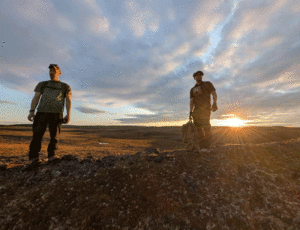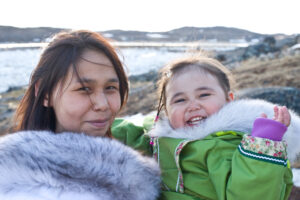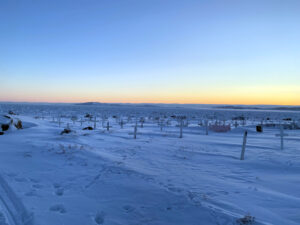Some of the first Christian missionaries who ventured out to tell the good news of the gospel were the disciples, sent by Jesus Himself. “Freely you have received, freely give,” He told them. Two by two He sent them out, as we read in Matthew 10, with just the clothes on their backs and no food or money.
The implication here is that the disciples were to rely on others to support them, “for a worker is worthy of his food” (Matthew 10:10). To the rest of us, before He was taken up into heaven, Jesus challenged us in what we know as the Great Commission to “go therefore and make disciples of all the nations.” The implication, again, is that the missionaries who carry that burden even into the farthest recesses of the world need to be fully supported in their roles as they carry out their mission.
In today’s world, the support roles include language experts, schoolteachers, nurses, aircraft pilots and so many other essential positions needed to reach those farthest recesses; each is individually funded by their sending churches and other providers. Yet, upon retirement, affordable housing becomes a concern. That’s where The Homes of Ethnos360 comes in. There are many places a retiring Ethnos360 missionary may wind up, whether it is back home with their families or serving at one of several Ethnos360 centers across the USA. But only Sanford, Florida, offers this retirement village for those who have served with the Ethnos360 organization.
No, The Homes is not a luxury resort like those that are so popular in sunny Florida. It is a place created specifically for the housing and care of retired missionaries, and it came about through wise investments, dedicated staff and astute planning for the future.

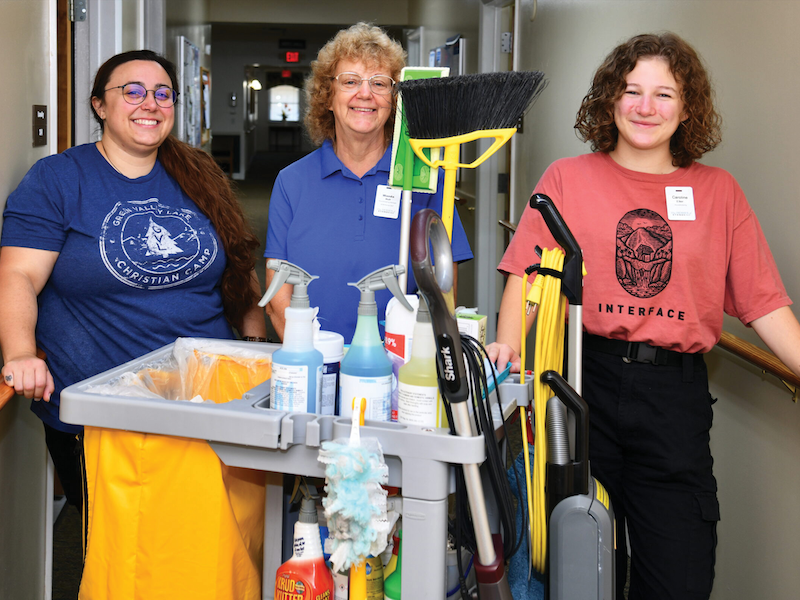

Going Back
The idea of providing a place for returning missionaries to retire had been tossed around for some time, and in 1974, a few retirees had set up some trailers and other housing on a parcel of Missouri land owned by New Tribes Mission (the former name of Ethnos360). But once the home office moved to Florida, the warmer climate was found to be more alluring for the retirees. So in 1979, the organization’s leadership decided to repurpose its 26-acre training center in Oviedo, Florida, just south of Sanford, into a retirement community christened the New Tribes Mission Homes, or more simply NTM Homes.
By early 1982, retiring missionaries started taking up residence. Construction continued over the next few years to include a new minimal-care center named the Latham Center, in memory of Lance Latham, one of the early leaders of New Tribes Mission. “What a blessing it was to be able to care for the retired missionaries who had served the Lord for so many years!” exclaimed Dan Thomas, who came to The Homes in 1994 and then served as its director from 2005 to 2020. But unfortunately, an eminent domain claim on the property came along in 1987; the center would have to be razed for a new toll road that would dissect the area. “This was terrible news, yet we felt that if God would take this facility away from us, He would give us something even better,” said Dan.
Those thoughts proved to be prophetic, because after a lengthy and frustrating search for a new property, God brought forth a realtor who suggested a 70-acre tract just a mile or so from the Ethnos360 Home Office in Sanford. “It was a celery field,” said Dan. “It had a house, a barn and an outbuilding, and there were probably three trees on the property.”
God also brought forth an architectural and engineering contractor for the planning and development of the property. “Their thinking and design for a retirement community was really a little ahead of its time,” said Dan. “I took landscape design in college, and I thought whoever designed this knew something about curvy roads and [houses] not lined up in squares and rows.”
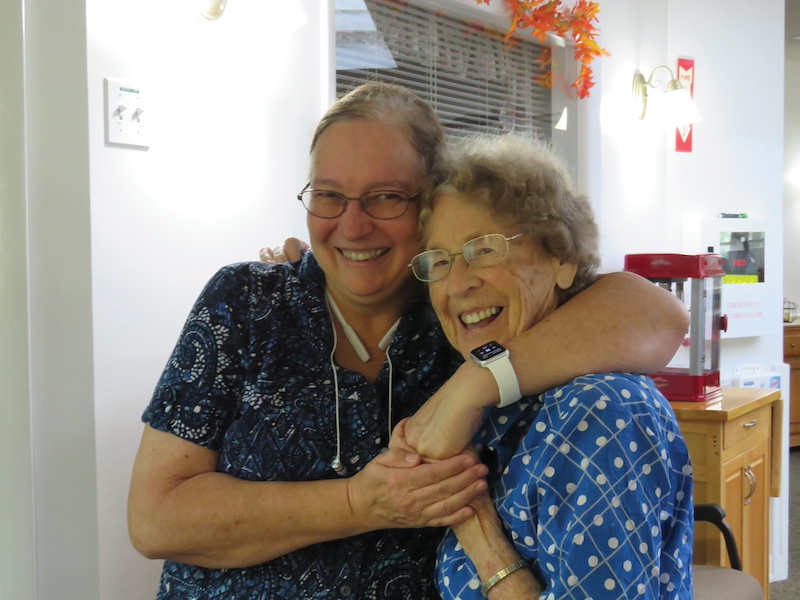
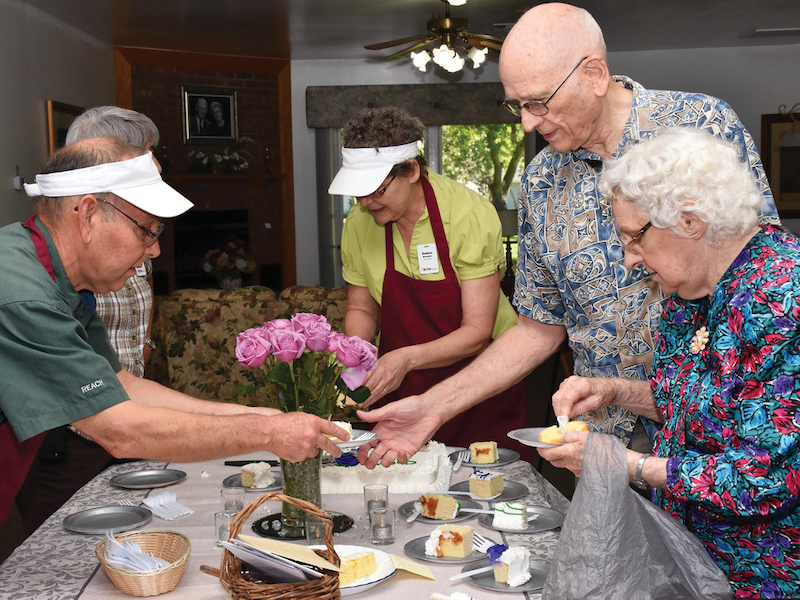
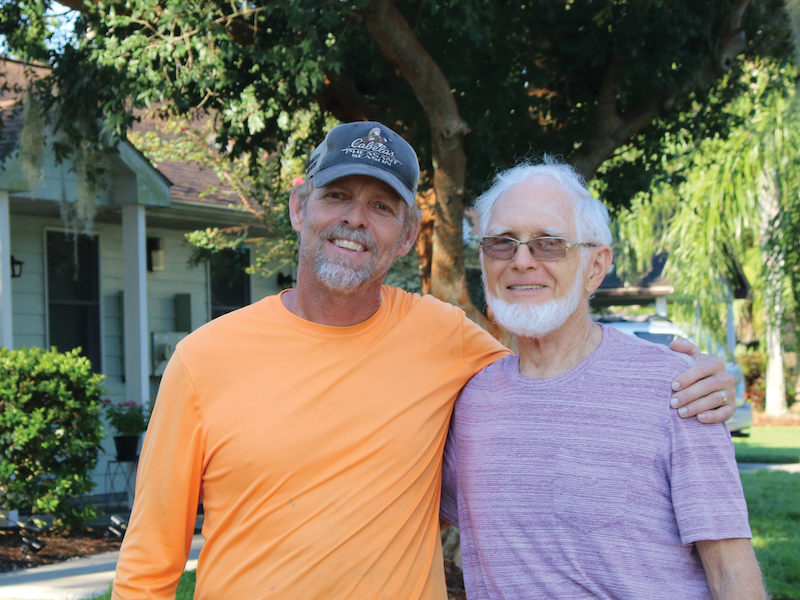
And so, with the help of staff, volunteer workers and contractors, 40 acres were developed to include a new Latham Center. “It was 1990 when we actually occupied the property,” said Dan. The remaining 30 undeveloped acres were recently sold off to a community subdivision developer.
Dan, who had served as a missionary in Papua New Guinea with his wife, Nancy, explained that years ago, one of the prevailing thoughts was to provide a place for members so that the second, third and fourth generations could serve overseas. “Well, there aren’t that many second and third and fourth generations anymore. I don’t really have an explanation for that,” he said, adding that the focus has changed. “We’re providing a place where our skilled, gifted members can come and continue ministry. Now, it won’t look like what they were doing [on the field] in most cases, but they can continue ministry in this place. It’s a place with a family atmosphere [like they experienced on] the mission field, plus they can continue to serve, even if it’s leading chapel or reading prayer letters and praying,” he added.
Many members had returned from the field for long-term stays due to medical problems or children’s needs, thinking that they might have to resign. But then they started asking if there was something they could do. “So, Member Services let them know our needs,” recalled Dan. “And that’s how we [found] a lot of our full-time staff.” But now those resources have started to dry up. “That’s been a challenge to try and find people who were not only willing but capable of serving in those roles we have here.”
Returning missionaries can serve for only so long due to age and health issues, so the search continues for those who can fill full-time staff positions in a support role for those who have reached retirement age.
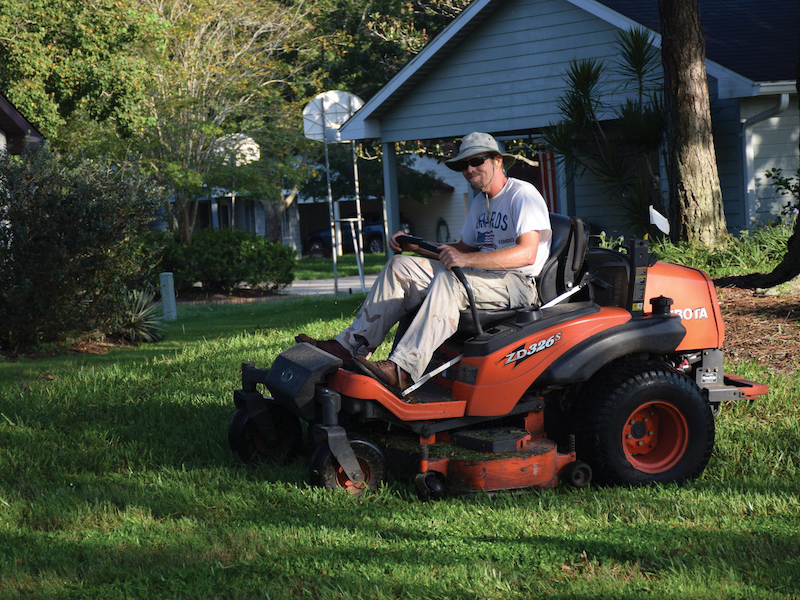
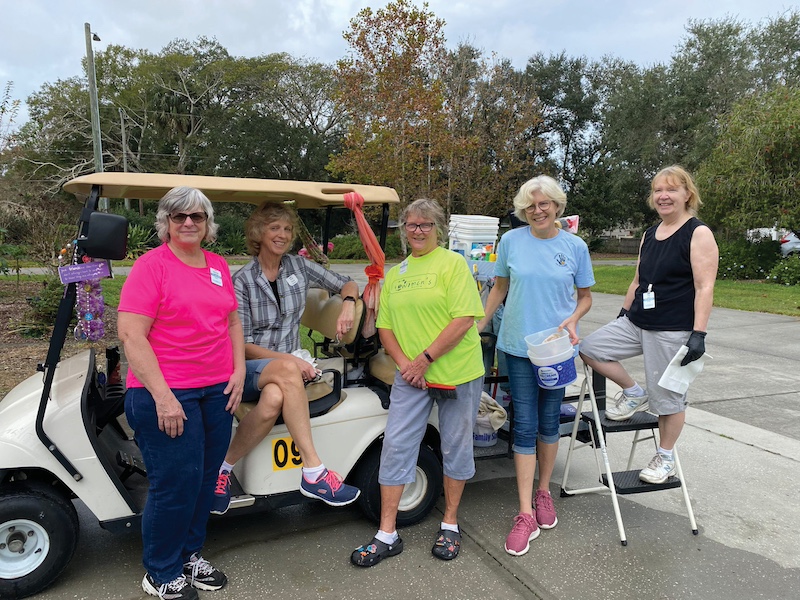
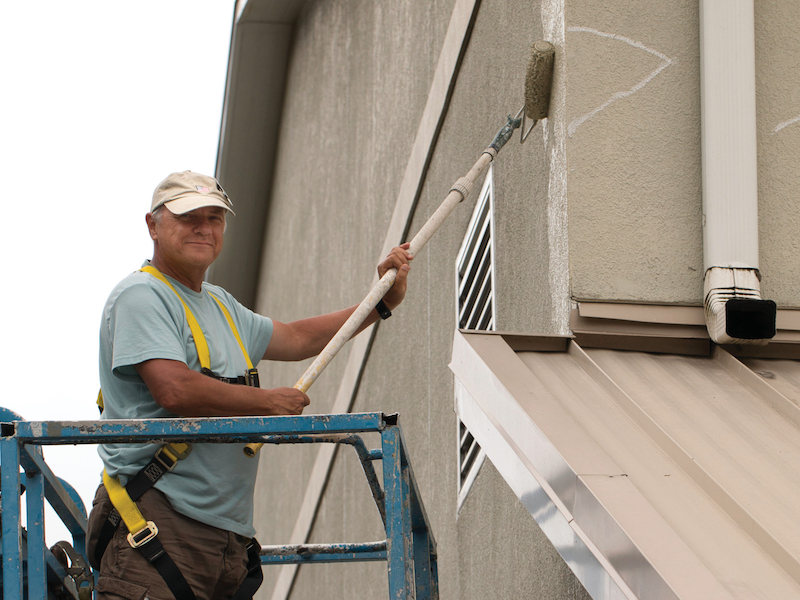
Staff
Not all full-time staff members come from an overseas mission, however, nor is it required. Bill Page and his wife, Lauri, came to The Homes to serve on staff without having had missionary field experience. “I’ve been at The Homes for approximately 30 years,” he said. Originally coming on board as a mechanic, he learned many other trade skills at The Homes out of necessity. Later, he stepped up into supervisory roles and now serves as the Director of Facility Operations.
“I grew up on a farm, repaired machinery all my life, and I figured I was good at it, so I might just as well get paid for it,” explained Bill. “And so, I went to school for diesel mechanics, and it was there that I got saved, accepted the Lord. Almost immediately, He impressed upon my heart that I needed to be in full-time service someplace.” After a couple of years of gaining a solid foothold on his newfound faith, he heard about New Tribes Mission. “I just knew that that’s where I was supposed to be. So, I signed up for Bible school and went through the training.”
Bill was originally asked to come on staff as a mechanic and to try it out for two years. The move from Oviedo to Sanford had already happened, and by the time Bill arrived, all the equipment was still new. “But eventually the first air conditioner quit,” he said, adding that he could work on automotive air conditioning but knew nothing about residential air conditioning. “So, I looked it over and really had no clue what was going on.” He called a technician and watched over his shoulder, and that helped him learn how to do the repairs himself.
“Then I was taking care of the air conditioners as well. Then the guy who was taking care of the phones had to retire, so he showed me how to take care of the phones. Then I was the phone guy,” said Bill. When the Internet came around, he became the IT guy. As the houses were being built, he learned all about drywall installation. After a hurricane blew off 14 roofs, he learned about roofing. “And of course, when the concrete truck comes on the property, everybody pours concrete.”
The Homes Purpose Statement
The Homes Purpose Statement is part of the overall Ethnos360 Purpose Statement and Ethnos360 Core Values.
The Homes of Ethnos360 exists to provide attractive, affordable, efficient and economical housing for retired, eligible Ethnos360 personnel who apply to live at The Homes, on a space-available basis. The Homes exists to provide a nurturing and caring environment, attempting to meet both the physical and spiritual needs of its residents, within staff, facility and state licensing capabilities.

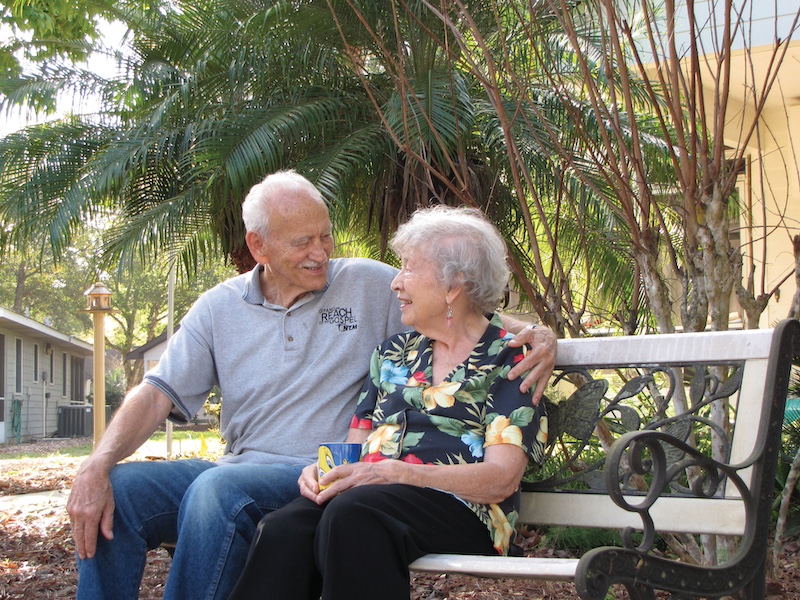
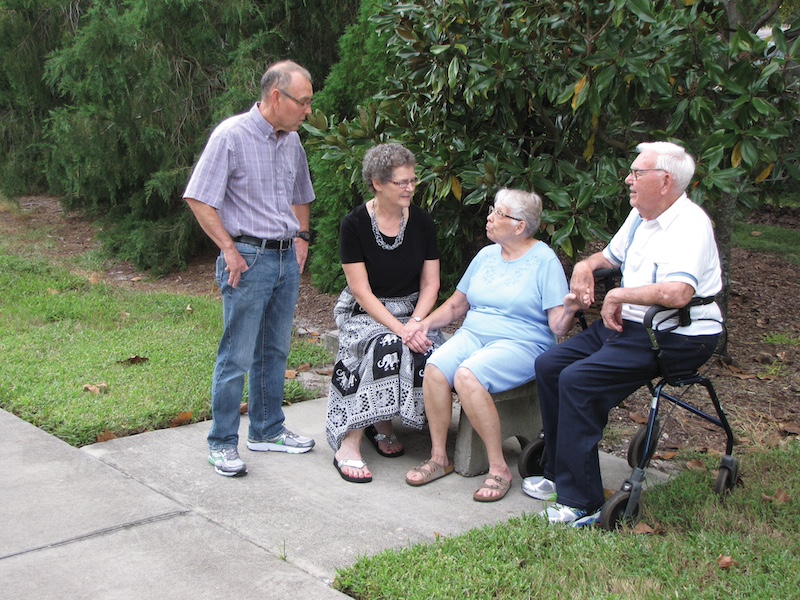
You can say that Bill is a Jack of All Trades, but you cannot say he is Master of None (to refute a popular phrase). He and the people he leads are very adept in the work they do. For example, some of the major projects they have tackled on the property include a 77-foot bridge and two 60-foot bridges across a lake for foot traffic and small vehicles; draining the lakes on the property to build retaining walls and reline the drainage pipes; building roads throughout the property; and rebuilding kitchens, bathrooms and other construction projects from the well-equipped carpentry and plumbing shops. And it’s all quality work. “It doesn’t make any sense to do anything other than quality work, simply because we have to maintain it after we build it,” said Bill.
Volunteer work crews that come during the winter have been a big part of completing those large, manpower-hungry projects. These “snowbirds” come not only to escape the cold, harsh weather but also to relish in serving the Lord in some way with their work skills. “You learn stuff from them,” said Bill. “You pick up different ideas and different ways of doing things.” Once they are gone in the spring, the staff enters maintenance mode due to limited manpower, until the volunteers return the next year.
Getting qualified staff on board has been problematic, partly because missionaries are unaware that the positions exist and partly because churches are reluctant to fund missionaries who are not on the field. “There’s a mindset that you have to go overseas to be a real missionary,” said Bill. “But biblically, where did this start? It started in Jerusalem. That’s over there. We are overseas! We are in the ends of the earth from where this thing started!”
Bill clarified that the need for more full-time staff has increased just in the last four years. “The ministry has grown here. When we moved onto the property, we only had two residents in the Latham Center, and there are now 18 independent rooms and eight Assisted Living Facility rooms, and we’re bordering on being full.”
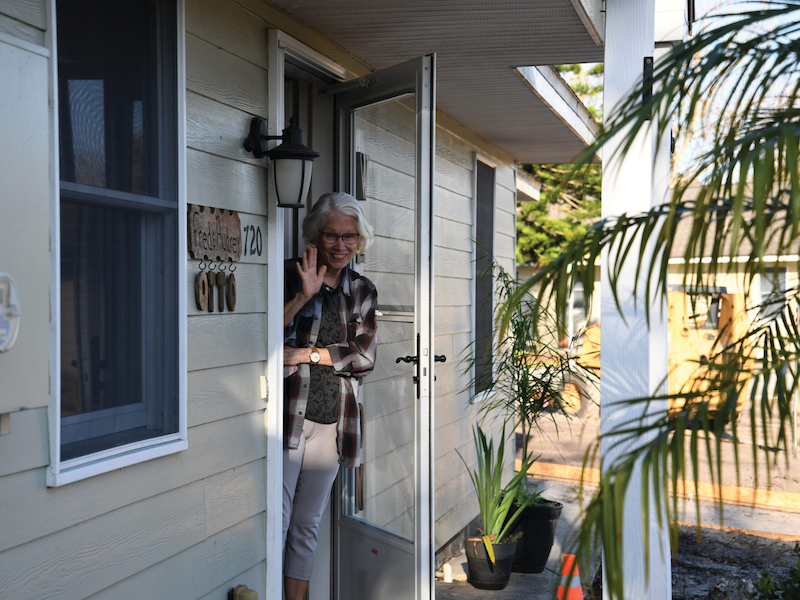
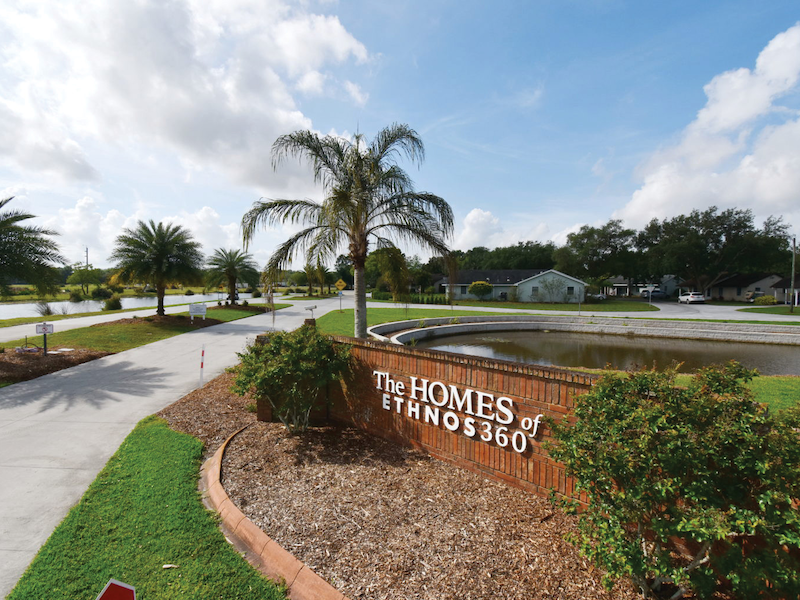

Residents
More residents in the Assisted Living Facility (ALF) means more cooking, cleaning, housekeeping and nursing staff are needed. “When we first started, we all took turns doing night duty up at the Latham Center, and we were able to add staff for that,” Bill explained. “But now one of those [staff members] is ready to retire, so we’re looking for a replacement.” All the nurses are in their 70s, he said, and most of the maintenance crew are in their 60s, so the search is on to line up younger staff members for training “so they can understand how the place works and can handle all the different facets of what we do.”
Unfortunately, The Homes is not licensed to function as a nursing home. As residents reach the stage beyond the needs that the ALF can offer, they must be placed elsewhere. “We are limited in what we can do for them,” said Bill. “We just hate it when they have to leave here. But we can no longer give them the amount of care that they need.” At that point, it would become a necessity to have 24-hour staff, nurses and doctors on call. “We don’t have all that.” But the care that The Homes does provide is a blessing to its residents. Typically, residents will first move into one of the duplex homes and then transfer over to the Latham Center when they can no longer live alone.
Sarah Keckler resides in one of the duplexes. “The next step when you can’t manage your home anymore [is to] go into the Latham Center where you have all your cooking done for you [and] your room is cleaned for you,” she said. “You can do your laundry if you want, but you don’t have to.” As their age progresses, the residents will move into the Assisted Living Facility section of the Latham Center.
Sarah served in Colombia for 31 years and has been a resident at The Homes for 25 years. “I can’t speak enough of what has taken place here,” she said. “When I was in training back in ’65, they were praying about this very type of a situation. Not only were they praying about it, [but] I also have the opportunity and the advantage to reap the benefits of those prayers. And it’s just exciting!”
She is truly ecstatic about having a place at The Homes. “We have a beautiful home,” Sarah said. “It’s not too big, so we don’t have a lot of upkeep, but we have maintenance men that do everything. They will even come in and change a light bulb if you need your light bulb changed.” When nasty weather blows through, they clean up the debris, and if a roof is damaged, they repair it. “And we just had a new driveway poured.”
Indeed, dozens of ready-mix concrete trucks had been on the property to pour a road that had to be replaced along the rear of the property leading to the back gate, and staff members and volunteers were on hand to do the finish work. Sarah also spoke of the time when an exterior wall in her duplex had to be replaced. “The whole wall was full of termites. They tore the whole thing out,” she explained, adding that they rebuilt it and cleaned it up afterward. A relative asked her how much that cost her, to which Sarah said, “‘Nothing. All we pay for is maintenance fees.’ And she just can’t get over that. They replace the carpet every eight years. They do all this stuff. And the neat thing is, they’re all missionaries themselves.”
Most of the heavy workload happens when the snowbirds come. These volunteers come to work, typically for the entire season, and park their RVs on site with water, electric and sewer hookups provided. “They keep coming back because they love it here,” said Sarah. “They love it as much as we do. And you have great fellowship.”
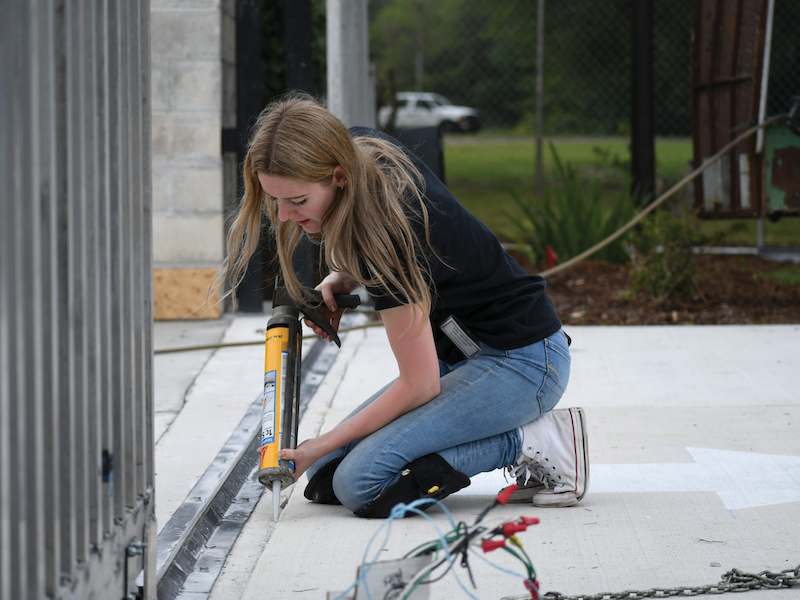
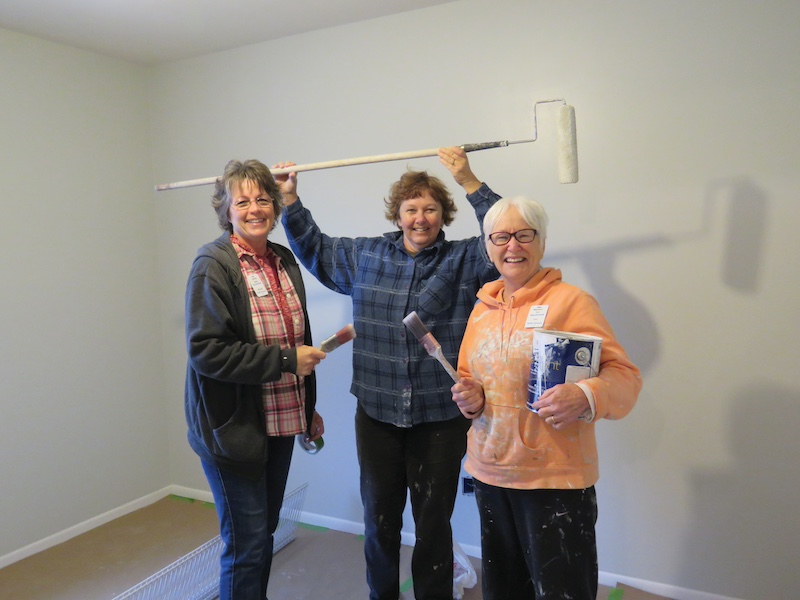

Volunteers
Some 20 RV spots are available for the volunteers, and they are often filled every season. Recurrent volunteers Doug Chandler and his wife, Karen, returned last fall for their 11th year. After a couple of years, Bill turned over the mechanical shop to Doug to be shop manager. “What do I do here?” repeating the question put to him. “They have on their property, I believe, 31 golf carts, two backhoes, one skid steer loader, one Kubota tractor, two Kubota zero-turn mowers, two pickup trucks, three minivans … and somebody has to keep it all going,” said Doug. “And it’s been fun; it’s been interesting.”
Doug and Karen found out about The Homes of Ethnos360 through a young lady they knew who was an inspirational teacher at their church, and she suggested they start volunteering with the organization. But what keeps them coming back is the people. “I know this isn’t heaven, but if there were a little piece of heaven on earth, this is it,” said Doug. “If the whole world functioned like it does here at The Homes, you wouldn’t see all the stuff that’s going on in the world today. It just wouldn’t exist. The people here are just incredible. Their hearts are in the right place.”
Doug has seen a lot of changes in the staff and volunteers over the years. “The biggest change is the people that you get really involved with and really get to like, and they’re good mentors,” he said. “And then the next time you come down, they’re not here any longer. That kind of hurts a little.”
For Doug the hardest part is seeing churches stop supporting their missionaries when they take a stateside ministry position. He explained that they are still part of the mission; they are just no longer on the field. Doug likens the support for missionary field work to the support for combat troops. He described a hypothetical conversation that might have gone like this:
“You were in the Air Force?”
“Yeah.”
“Did you fly planes?”
“No.”
“Why did they pay you?”
“I don’t think people understand that for every person who’s out on the field, there’s an awful lot of people behind him, making sure that he can do the job that he’s doing,” said Doug. “Without them, he’d be sunk.”
In the military, the concept is called the tooth-to-tail ratio, where there are so many combat troops (the tooth) in ratio to support troops (the tail). The ratio has changed over the decades and centuries, depending on the situation, but the idea is the same: They require a lot of support. “If they can’t get the support or if they can’t fill positions, then the guy on the front line is going to suffer,” Doug added. “I’ll do my little part here to make it easier for the rest of them to continue their work.”
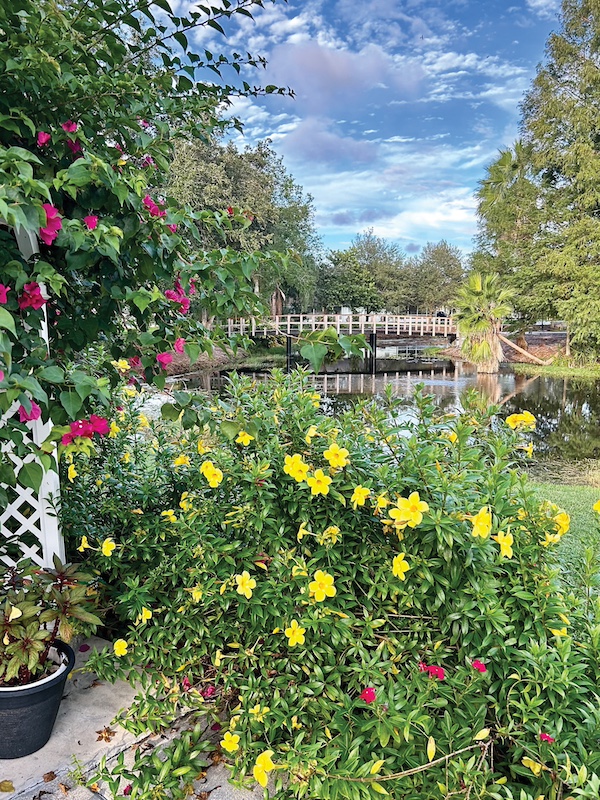
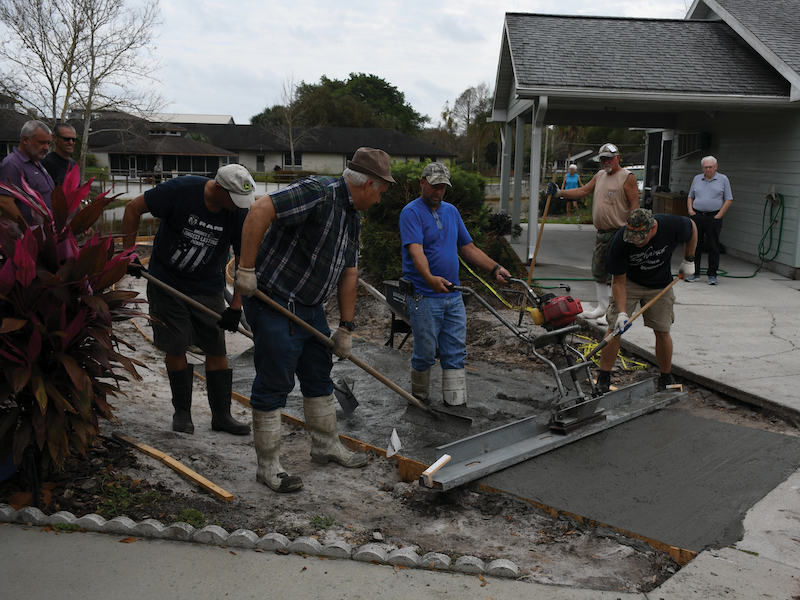
Going Forward
Residents have their own funding needs, but the other part of the equation is the funding needs for the missionaries who take on the staff positions. “We all have to raise our own support,” said Brian Shortmeier, director of The Homes of Ethnos360. That includes all positions within the organization, even among the leadership. All funding designated for a missionary goes directly to the missionary, and funds are not taken from the missionaries going overseas to fund other activities. “That’s what I like about Ethnos360,” said Brian. “They don’t take off 10 or 15 or 20 percent from your overseas missionaries to fund the stateside ones.”
Brian and his wife, Susan, served at a school in Papua New Guinea (PNG) from 1984 to 2000 with Brian as the high school principal. “Then from 2000 to 2010, I served as field administrator,” said Brian. They then left PNG and headed for Sanford, where Brian served at the Home Office as Chief Administrative Officer on the Executive Leadership Team. In 2020, he started serving simultaneously as director of The Homes.
“We were on the field for 26 years,” said Brian, “so our team stayed behind us when we left PNG.” Others have had to discontinue mission work prematurely after returning from overseas because they felt they didn’t have enough financial resources to retire. “But I don’t know … if they realized what we here at The Homes can offer,” said Brian. He urges them to trust the Lord just as they had trusted Him during their time on the field. “Which is why this place is just utterly fantastic.”
The Homes offers camaraderie and safety at a low cost to missionaries. Plus, as Brian added, it’s “the fellowship they get, the idea of being able to live around people that have been through the same life experiences and so understand what it is you’re going through. In fact, of all the places I’ve been – and I’ve loved every ministry that I’ve had in various places – the camaraderie and the morale here are higher than any place I’ve ever been.”
And then there are the volunteers, especially the snowbirds who come year after year. “They just love being here, not only for the way they fellowship with each other, but the fellowship they have with us, both staff and residents. It encourages them,” Brian said.
“This is caring for the household of the saints,” added Brian. “It is scriptural, and we just take it from beginning to end. So yeah, it takes a lot to do that, and not everyone understands that.”
Many of the people who come to The Homes have no idea how nice it is, continued Brian, and no idea what all is going to be provided. “And then to realize that they’ve moved in next to somebody that maybe they trained with 40 years earlier, hadn’t seen for 40 years, and now they get to renew that friendship and talk about how things were the same and how they were different in their respective fields. You can’t buy those things anywhere else.”
For more information about staff positions, contact Brian Shortmeier at brian_shortmeier@ntm.org.
And check out short-term internship and volunteer opportunities here.
About the Author
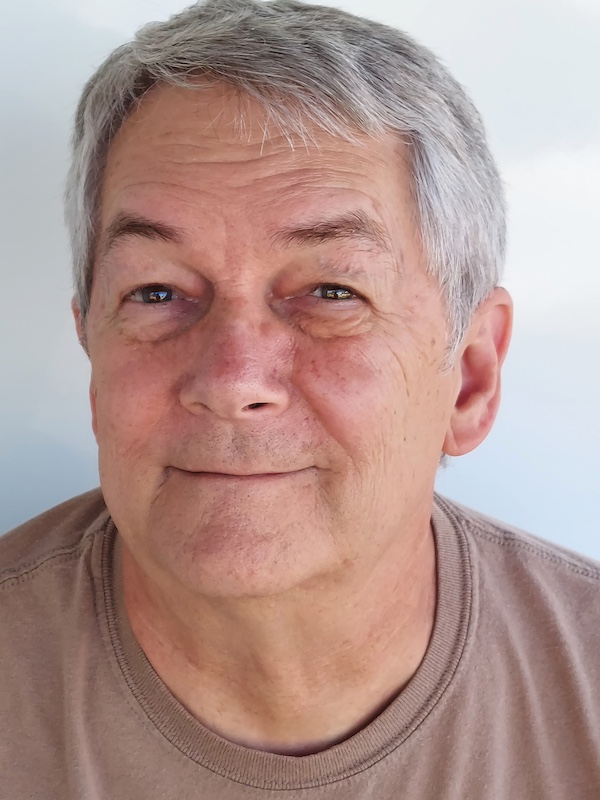
Contributing Writer
Ron Hyink retired from the US Air Force, serving first as a linguist during the Cold War and then as a photojour- nalist for various Air Force publica- tions. He subsequently was employed in the nonprofit sector as a managing editor until his second retirement. With this experience in language and com- munication, he is now serving the Lord as a volunteer writer/editor with the Ethnos360 Home Office.


